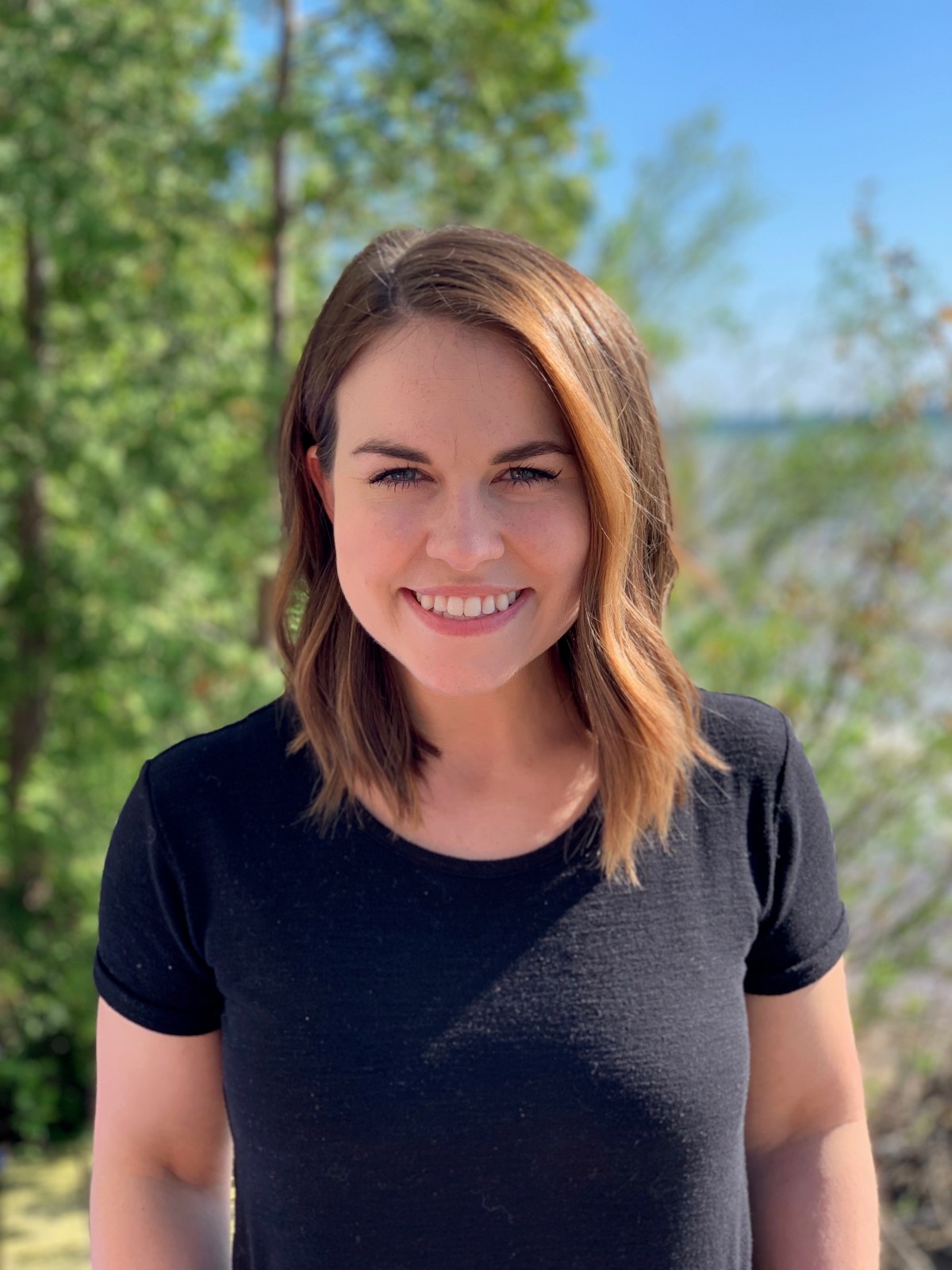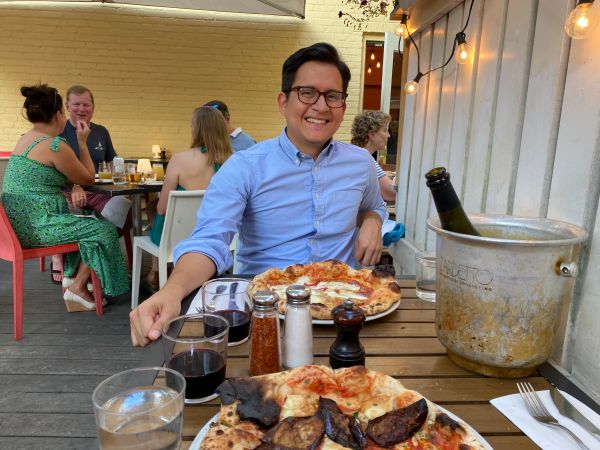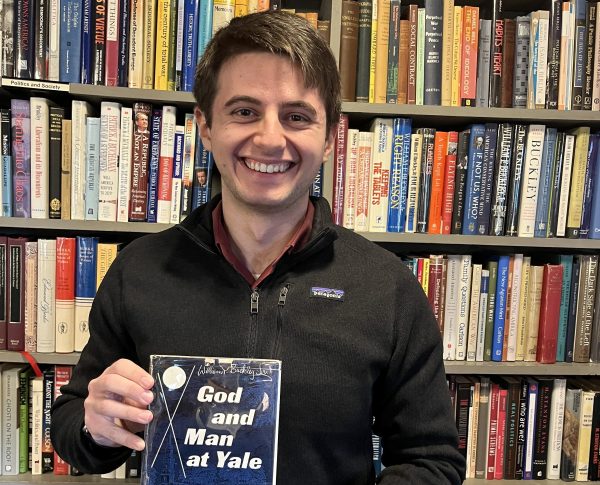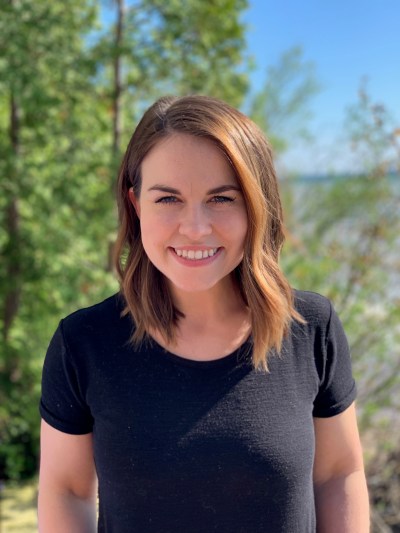When Declan asked me a few weeks ago if I’d like to participate in the Monthly Mailbag, I jumped at the opportunity. I’ve spent my time at The Dispatch very much behind the scenes (and prefer it that way), but I’ve always thought about what I’d want to say if I was able to address our wonderful members directly.
Thank you for your support of what we’re doing, now five years in. You not only pay our salaries, but you’ve given us the leverage to build something that’s worth building. While there is a lot to bemoan about our politics right now, I am encouraged that there is still a market for sane and thoughtful journalism, and that’s thanks to all of you. Now let’s get to your questions!

On The Dispatch’s Early Days
Chad.Ingels: What were you thinking when Steve and Jonah offered you to come on board a nonexistent company?
This is a great way to set up a bit of my origin story. In the midst of a long job search upon relocating from Chicago to Washington, D.C., I serendipitously met Toby Stock, The Dispatch’s third co-founder, who said, “Hey, would you like to come start a company with us?” I had a background in HR and operations and apparently had made myself seem competent enough to take on this endeavor with them. After meeting Jonah and Steve for the first time, I was immediately taken with the mission and vision for what would eventually become The Dispatch.
“NewCo”—as we called it at the time—had no name, bank account, employees, office space, or really any infrastructure to speak of, except for a number of investors who had committed to funding us. There were also a few key advisers behind the scenes who had seen real success in their respective fields who gave me confidence that this was more than just a half-baked idea from two journalists (with all due respect to my dear bosses). So, it was the perfect convergence of a few factors. I needed a job, they needed a scrappy person to get things going, and I saw the need for this type of journalism as we headed into the fraught 2020 election cycle. I jumped in with both feet and have never regretted the decision.
David: Describe the moment when you knew The Dispatch was going to be successful and you made the right choice.
Linda Beggs: I, too, would like to know your first ‘ah ha’ moment that y’all had tapped into a unique space in journalism.
I will say, this moment came very early for me. We launched the Lifetime Membership in October 2019, and I think we were all buoyed by the immediate positive response. In tandem with that, Steve and Jonah published their manifesto, which I would have tattooed on my arm if I was into tattoos. I was also very impressed by the caliber of journalists and pundits who signed up to join us as soon as we launched. The output and determination of my colleagues in those early days was nothing short of heroic.
David M: I didn’t know that Valerie was the first employee. Congrats to her and I suspect her work has been instrumental in making The Dispatch a great company. So what does she do exactly?
I am so proud to be the first employee at The Dispatch, but in a lot of ways that is a purely technical distinction. There was a cadre of folks that Steve and Jonah had been recruiting and talking to simultaneously, I was just the first one officially on the books. I could never take credit for the success of The Dispatch, but I’m so humbled and happy to have played a small role.
So, what is it that I do exactly as the director of talent and operations? My major areas of responsibility include human resources, finances, board governance, and vendor management. That said, there’s been plenty of other things I’ve managed over the years given our small but mighty business side of the house. It’s been a challenge to build our systems from nothing, but many things are now second nature to me or have been delegated to colleagues. It’s been very gratifying to see the company grow from a handful of employees to 27 full-time staffers today. We’re continuing to professionalize and improve the operation and it’s getting more interesting all the time.
Leslie: I’d love to hear your favorite parts of Dispatch culture, how it’s changed, and how you think that culture serves the objectives of the publication.
My favorite part of The Dispatch’s culture is of course the fantastic staff. As a non-journalist (but political science major!), it’s fascinating to watch the back and forth between brilliant minds in the company Slack channels. Folks genuinely like each other and cheer one another on, which allows space for healthy disagreement on substance. And on a personal level, we’ve had the joy of welcoming in many new partners and children over the last five years. We’re proud of the family-friendly environment that we’ve created. Like any company, we’ve had some turnover, but I think a lot of the factors mentioned above have helped us to retain a lot of talent over the years.
On Attending Wheaton College
Mgerber: What led you to attend Wheaton?
I was surprised at how much interest the mention of my attending Wheaton College (IL) received, but then again, Wheaton is a storied and interesting place. From first to 12th grade, I attended a private Christian school in the Philadelphia suburbs that had strong ties to Wheaton. My graduating class was only 85 students, and five of us ended up attending Wheaton. Besides the influence of my classmates, I knew I wanted to go to an academically rigorous college that had a faithful Christian witness.
Noah Sanders: Can you discuss how the wonders of a liberal arts education prepared you for a job in media? Was it liberal arts or bust in your college decision?
I only started to appreciate the liberal arts model once I started at Wheaton and saw the breadth of subjects and professors I was able to engage with outside of my political science major. I will not do it justice here, but, for an excellent defense of the Christian liberal arts education, I recommend reading Liberal Arts for the Christian Life.
Wheaton grew my love for intellectual arguments and scholarship that is submitted to Christ. I use many of the critical thinking skills I developed in college every day, and my appreciation for understanding those with whom I don’t necessarily agree. My fondness for Wheaton also has a lot to do with meeting my dear husband and the father of my children (a classic Wheaton love story).





Please note that we at The Dispatch hold ourselves, our work, and our commenters to a higher standard than other places on the internet. We welcome comments that foster genuine debate or discussion—including comments critical of us or our work—but responses that include ad hominem attacks on fellow Dispatch members or are intended to stoke fear and anger may be moderated.
With your membership, you only have the ability to comment on The Morning Dispatch articles. Consider upgrading to join the conversation everywhere.